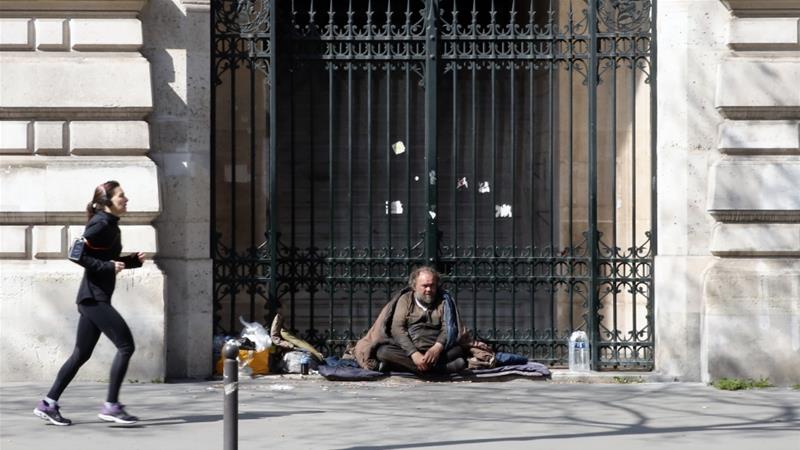Breaking News
US homeless people sleeping outside gets Supreme Court’s attention
The ordinances “nominally prohibit camping, but in reality make it unlawful for homeless people to sleep or rest anywhere on public property at any time with so much as a blanket to survive the cold, even if they have no access to shelter,” the lawyers argued.

As the nation struggles with rising numbers of people living on the streets and a shortage of shelter beds, the US Supreme Court heard arguments on Monday over whether towns can forbid homeless individuals from sleeping outside.
The issue revolves around ordinances in the western Oregonian city of Grants Pass that forbade camping or the use of any form of bedding on public property, despite the fact that public parks were populated with tents, blankets, and cardboard.
Advocates for the homeless have contended that prohibiting individuals from camping when there is nowhere else to stay would be “cruel and unusual punishment,” which is against the Eighth Amendment of the US Constitution.
In a 2022 decision, the Ninth Circuit Court concurred; this decision is currently being appealed to the nation’s highest court.
The ruling from the nine justices will carry high stakes, with a record 653,100 people homeless across the country according to a 2023 count, as cities struggle to manage poverty, mental health issues, addiction and housing shortages.
Cities across the country use camping bans to sweep homeless people out of parks and other public property.
“The cruel and unusual punishments clause governs which punishments are permitted, not what conduct can be prohibited,” Grants Pass’s lawyer Theane Evangelis said in oral arguments.
“This court should reverse and end the Ninth Circuit’s failed experiment, which has fueled the spread of encampments while harming those it purports to protect.”
Grants Pass, population 40,000, does not have a municipal homeless shelter and instead relies on private charities.
Lawyers challenging the law argued to the conservative-majority Supreme Court that Grants Pass sought to “force its homeless residents into other jurisdictions” via the camping ban.
“The plan was to inflict fines and jail time on the City’s homeless residents until they were ‘uncomfortable enough’ that they left Grants Pass,” they wrote in written arguments.
The ordinances “nominally prohibit camping, but in reality make it unlawful for homeless people to sleep or rest anywhere on public property at any time with so much as a blanket to survive the cold, even if they have no access to shelter,” the lawyers argued.
Asked by Chief Justice John Roberts what the city would do if its appeal failed at the Supreme Court, Evangelis said its “hands will be tied.”
“It will be forced to surrender its public spaces,” Evangelis added.
In addition to poverty, drug addiction and a lack of shelter beds propelling homelessness, economists argue the country’s market-rate housing stock is woefully behind target — leaving the United States short of millions of homes needed to meet demand and increasing prices for existing housing.
AFP


















